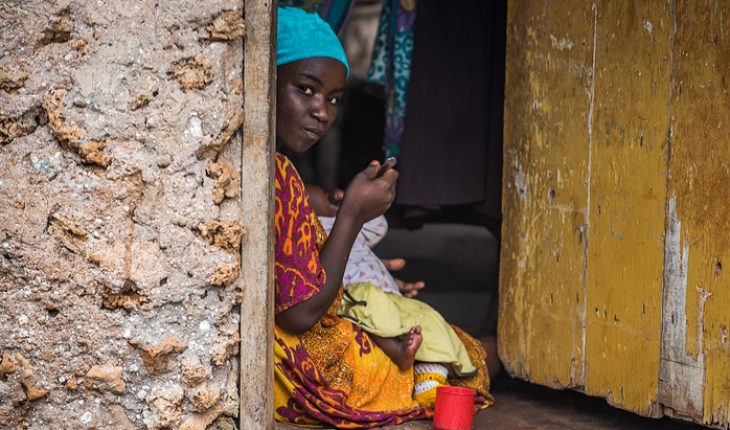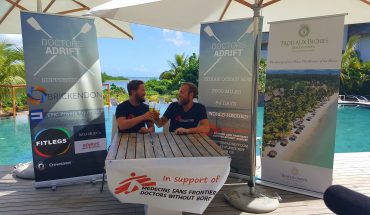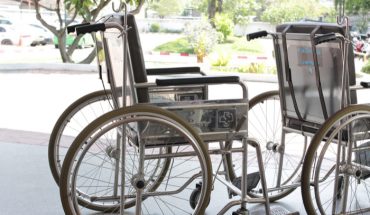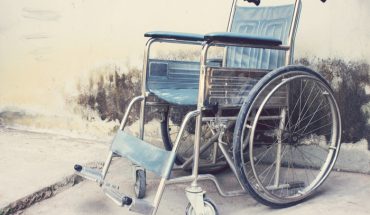As-salamu alaykum! (“May peace be upon you” in Arabic). This is the common greeting heard here in Bokoro, a town about 300 km east of N’Djamena, the capital of Chad. Bokoro is in central Chad, in the southernmost part of the Sahal belt of Africa, so it is an extremely hot, dry, desert climate with very low precipitation.
Malnutrition in Bokoro was accounting for nearly 50% of the deaths of children under five years of age.
Médecins Sans Frontières (MSF) intervened here in Bokoro because the level of severe acute malnutrition was critically high. In fact, malnutrition in Bokoro was accounting for nearly 50% of the deaths of children under five years of age.
This was my first mission with MSF and I was asked to come to Chad to help with this emergency, with a focus on malnutrition and primary health care for children. This was a good fit for me based on my previous nursing experiences and international work. I lived and worked with approximately 12 other expats to contribute to the fight against malnutrition and have a positive impact on the health of children in Bokoro.
In Bokoro, we are running a large inpatient therapeutic feeding centre and 15 ambulatory therapeutic feeding centres in surrounding villages in the region. My job is to supervise these 15 mobile sites with a staff of approximately 60 national staff, caring weekly for over 3000 children suffering from acute malnutrition. We travel up to 150 km to reach some isolated villages where we run our mobile malnutrition clinics. During rainy season, some of these dirt roads are flooded and it can take almost 3 hours (one way) to reach some of our clinic sites. Despite the challenges of accessing many of our mobile sites, my teams are always enthusiastic and ready to provide quality health care to these children, desperately in need of MSF‘s medical services.
Malnourished children are almost always co-infected with various other diseases as they have lowered immune systems.
Malnutrition presents in 2 different forms: marasmus and kwashiorkor. The majority of our patients have marasmus (they are extremely thin), but occasionally we find children with kwashiorkor, where the child looks chubby, but this is actually due to edema (swelling) from a lack of protein. They are retaining fluids and are extremely sick. When a child arrives at our mobile clinic, we measure their Mid-Upper Arm Circumference (MUAC) to determine their nutritional status. If the child’s MUAC is less than 120 millimetres, then they are admitted into our nutritional program. We are also able to treat diarrhea, malaria, respiratory infections, parasites and worms, vitamin A deficiency, as well as eye infections. Malnourished children are almost always co-infected with various other diseases as they have lowered immune systems. In our mobile clinics, we are using a product called PlumpyNut to treat malnutrition. PlumpyNut is a high calorie, nutrient-dense, peanut-based product. It tastes like extremely sweet peanut butter and helps children gain weight.
Before my arrival in Bokoro, I had never seen so many critically ill children in my life, in spite of my many years of working in pediatrics and in emergency departments. Often times, parents in Bokoro will take their sick and malnourished child to a traditional healer first, before coming to our clinic. Traditional healing methods include herbal medications that often are toxic or scarification, whereby a knife is used to draw lines on the skin of the child, usually over the affected area. Children suffering from malnutrition often have these lines on their faces and abdomen. Another traditional healing method is to remove the uvula from the back of the mouth. Unfortunately these traditional healing methods worsen the child’s condition and by the time the child arrives at our clinic, they are extremely ill.
Recently, I transferred a tiny 6-month-old infant from our mobile clinic and I was so scared she would not survive the 2 hour car ride to MSF‘s inpatient therapeutic feeding centre at the Bokoro hospital. Initially this baby had a respiratory tract infection. However, this baby had been “treated” by a traditional healer and the uvula was removed in an attempt to treat the respiratory infection. Now this baby was refusing to breastfeed as it likely hurt to swallow. The incision had become infected and of course the infant still had the respiratory infection, which was now worsening. The mother finally brought her to our clinic. The infant was severely dehydrated and febrile, with severe respiratory distress, terrible indrawing and retractions, tracheal tug and a horrific rattling cough. She was also having frightening apneic spells when she would stop breathing. Initially, the prognosis was quite poor when she was admitted into MSF‘s intensive care unit, but thankfully this infant is now recovering. I see her every so often when I am at the hospital and her mother always greets me with a huge smile and speaks to me in the local language of Brulala.
young children who are the most vulnerable and at the highest risk of developing malnutrition
There are numerous reasons for these children suffering from malnutrition in Bokoro. Many people in the region are cultivators. Unfortunately due to climatic changes in the region, they are having smaller harvests and there is a lack of food annually from June to October. As a result there is a lack of access to nutritious foods, especially for young children who are the most vulnerable and at the highest risk of developing malnutrition. There are many other factors that contribute to malnutrition including a lack of basic education about health and nutrition and a lack of birth spacing. For example, a common issue here is that an older child is weaned due to a new pregnancy, so breast milk is replaced by a diet high in carbohydrates and as a result, the child becomes malnourished. There are also a lot of myths surrounding breastfeeding. If a child is sick, mothers will immediately stop breastfeeding. Many mothers believe that their child’s diarrhea, vomiting and general illness are due to insufficient, poor quality or harmful breast milk. And this in turn, further contributes to malnutrition.
Therefore, it is vital that MSF also focus on preventing malnutrition. MSF organized a massive distribution of PlumpyDoz (a nutritional supplement, with plenty of vitamins and minerals used to prevent malnutrition), mosquito nets, and soap in the entire Bokoro region, with the goal of preventing malnutrition, malaria and improving hygiene.
We have also been focusing on health promotion to educate mothers and families on proper nutrition and the causes of malnutrition. We are also teaching about hygiene and malaria prevention, which is endemic in the region especially during rainy season. In addition, we have been doing a pump reparation project and we have repaired over 25 hand pumps in the region in order to improve access to water.
approximately 60 national staff, caring weekly for over 3000 children suffering from acute malnutrition
The health needs of children here in Bokoro are tremendous and it is difficult to see such suffering that can be prevented. Everyone is very thankful that MSF is here to provide help and it is very evident that MSF has been able to dramatically decrease the number of children suffering from malnutrition and improve the health of children in the region, with our curative program as well as with our preventative approach. I have met some incredible people living here in Chad and I am always amazed by their tenacity and spirit, despite the difficult living conditions. Each and every person I have met here in Chad will always have a special place in my heart.
Because I support and value their mission and principles, I had always wanted to work with MSF to deliver much needed medical care around the world. This is my chance to do my small contribution and this experience has definitely surpassed my expectations. To work with MSF, you need to be ready for the most worthwhile and rewarding experience of a lifetime. You need to be ready to work long and hard days in the field and you will live off of coffee. But you will work with an incredible team of people from different areas of the world, all of whom have the same common goal, to make a difference in the lives of others.
- Life in Chad with MSF - 2nd November 2016







